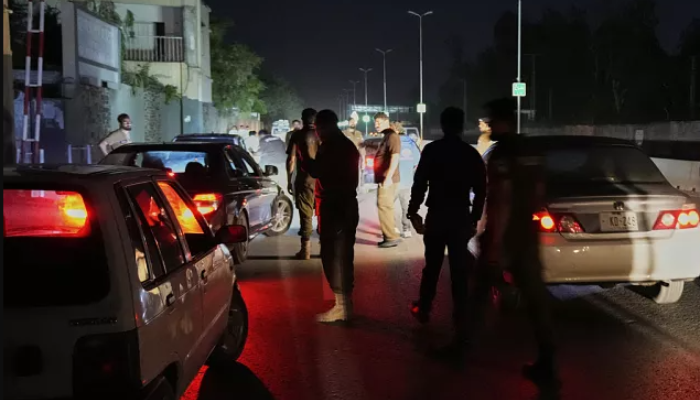
Tensions between India and Pakistan surged early Saturday as Pakistan accused India of launching ballistic missile attacks on three military airbases within its territory. The Pakistani military reported that most of the incoming projectiles were successfully intercepted, and no major damage or casualties have been confirmed.
Targeted Air Bases in Pakistan: Rawalpindi, Chakwal, and Jhang
According to Pakistan Army spokesperson Maj. Gen. Ahmad Sharif, the Indian missile strikes were aimed at the Nur Khan airbase in Rawalpindi, Murid airbase in Chakwal, and the Rafiqui airbase in Jhang district, Punjab. Following the attack, Pakistani authorities evacuated civilians and vehicles from the Nur Khan base area as a precautionary measure.
In a televised statement, Sharif described the missile strikes as a “provocation of the highest order,” adding that Islamabad had already launched counter-strikes targeting “multiple sites” within Indian territory. However, Pakistani officials did not disclose specific locations being targeted in retaliation.
India Remains Silent Amid Growing International Concern
So far, New Delhi has not issued any formal response to the missile strike allegations. Pakistani sources claim that some Indian-launched missiles misfired, with one reportedly landing back in Adampur, the Indian city from which it was launched, while others hit areas near Amritsar in Indian Punjab and even reached parts of Afghanistan.
“We have solid evidence confirming the launch of six ballistic missiles from Adampur,” said Sharif. “One landed in Adampur, while five others impacted the Amritsar region.”
Background: Kashmir Attack and Rising Hostilities
This escalation follows a deadly assault on April 22 in Pahalgam, located in Indian-administered Kashmir, which claimed the lives of 26 people, mostly tourists. India blamed Pakistan for facilitating the attack, a claim Islamabad has strongly denied.
In the days leading up to this exchange, Indian forces reportedly carried out airstrikes on alleged militant locations inside Pakistan, resulting in 31 civilian deaths, according to Pakistani officials. In response, Pakistan claims it shot down five Indian fighter jets, marking one of the most volatile flare-ups in recent years between the nuclear-armed neighbors.
United States Calls for De-escalation, Rules Out Military Role
U.S. Vice President JD Vance addressed the rising conflict in a recent media briefing, stating that while the United States will not intervene militarily, it is urging both India and Pakistan to step back from the brink.
“We want this situation to de-escalate swiftly,” Vance emphasized. “This is not a war the United States should get involved in, but we are working through diplomatic channels to encourage peace.”
Vance added that while Washington cannot dictate actions to either government, the hope is to prevent the standoff from spiraling into a full-scale regional war—or worse, a nuclear confrontation.
